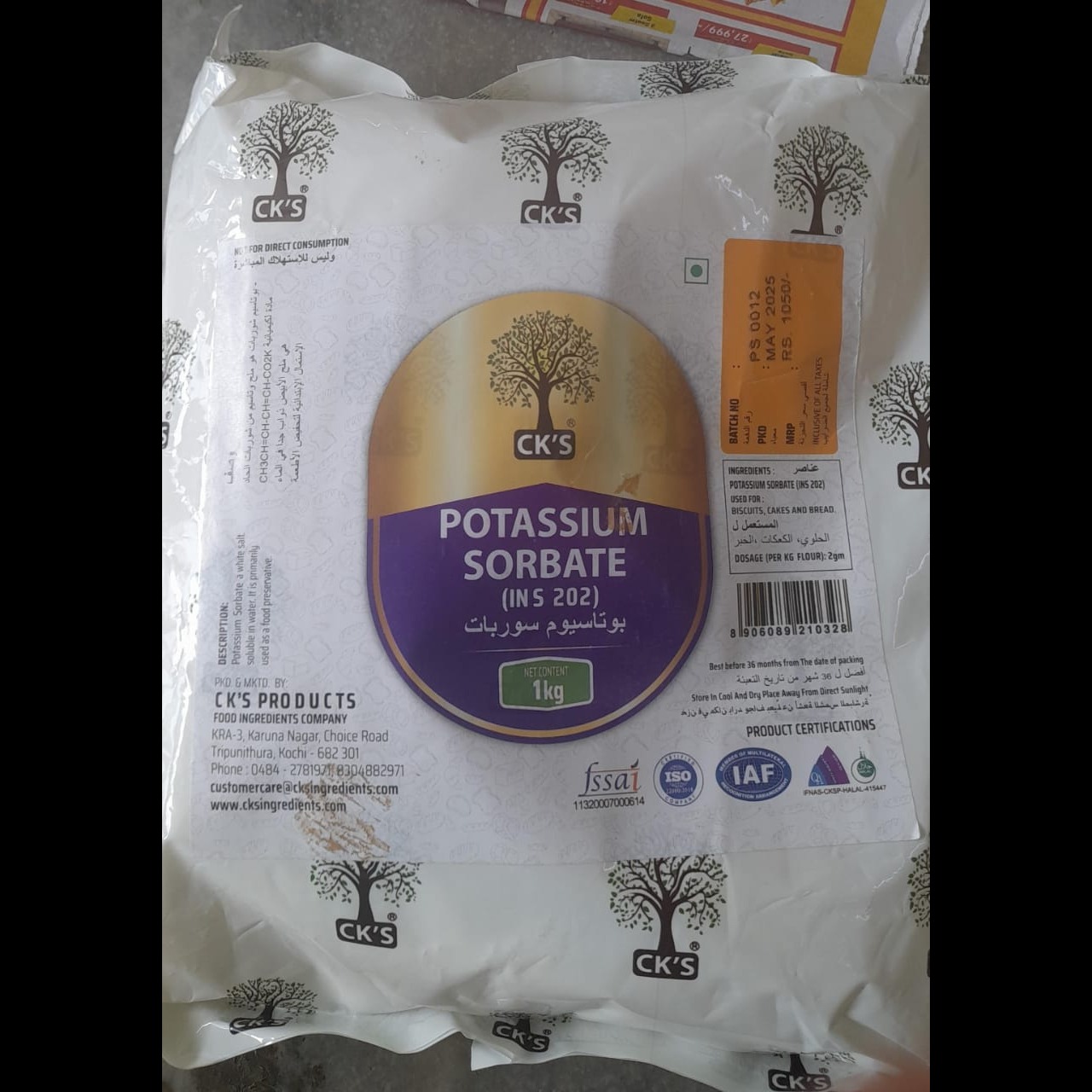
2025-06-11T12:52:05
Potassium sorbate is the potassium salt of sorbic acid, structural formula CH3CH=CH−CH=CH−CO2K. It is a white salt that is very soluble in water (58.2% at 20 °C). It is primarily used as a food preservative (E number 202).[4] Potassium sorbate is effective in a variety of applications including food, wine, and personal care products. While sorbic acid occurs naturally in rowan and hippophae berries, virtually all of the world's supply of sorbic acid, from which potassium sorbate is derived, is manufactured synthetically. Production Potassium sorbate is produced industrially by neutralizing sorbic acid with potassium hydroxide. The precursor sorbic acid is produced in a two-step process via the condensation of crotonaldehyde and ketene.[5][6][7] Uses Potassium sorbate is used to inhibit molds and yeasts in many foods, such as cheese, wine, yogurt, dried meats, apple cider, dried fruits, soft drinks and fruit drinks, and baked goods.[8] It can also be found in the ingredients list of many dried fruit products. In addition, herbal dietary supplement products generally contain potassium sorbate, which acts to prevent mold and microbes and to increase shelf life. It is used in quantities at which no adverse health effects are known, over short periods of time.[9] Labeling of this preservative on ingredient statements reads as 'potassium sorbate' or 'E202'. Also, it is used in many personal care products to inhibit the development of microorganisms to increase shelf stability. Some manufacturers use this preservative as a replacement for parabens. Also known as 'wine stabilizer', potassium sorbate produces sorbic acid when added to wine. It serves two purposes: When active fermentation has ceased and the wine is racked for the final time after clearing, potassium sorbate renders any surviving yeast incapable of multiplying. Yeast living at that moment can continue fermenting any residual sugar into CO2 and alcohol, but when they die, no new yeast will be present to cause future fermentation. When a wine is sweetened before bottling, potassium sorbate is used to prevent refermentation when used in conjunction with potassium metabisulfite. It is primarily used with sweet wines, sparkling wines, and some hard ciders, but may be added to table wines, which may not maintain their clarity after fining. It also inhibits bacteria, especially Clostridium botulinum.[10] Tube feeding of potassium sorbate reduces the amount of pathogenic bacteria in the stomach.[11] Some molds (notably some Trichoderma and Penicillium strains) and yeasts are able to detoxify sorbates by decarboxylation, producing piperylene (1, 3-pentadiene). The pentadiene manifests as a typical odor of kerosene or petroleum.[12]

Have a question? Ask here!
Required fields are marked *